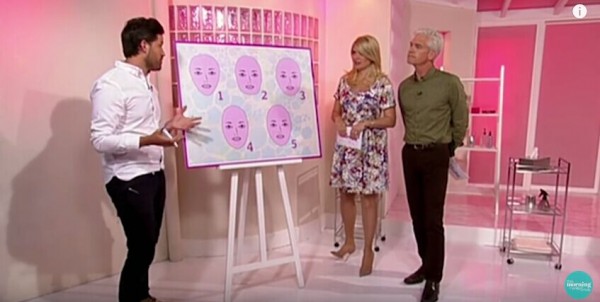By Angel Lee, | June 09, 2017

Strange News: New Scientific Theory Determines if Your Name Fits Your Face!
A new scientific study suggests that people may be mysteriously good at matching names to strangers' faces. In the journal Psychonomic Bulletin and Review, Professor Jamin Halberstadt from the University of Otago and Ph.D. candidate David Barton have recently claimed that if a person has a name that matches his face, he is more likely to win votes if he's a politician, and gain approval in general. That said, psychologists believe that it may also be linked to people who subconsciously alter their appearance in order to conform to cultural norms associated with their names.
Like Us on Facebook
Names That Fit the Face
The study reveals that for people whose names are Herbert, for example, typically represents a slang name for a dimwit, which means that it wouldn't make a good choice for parents deciding what to call their son. In conducting the experiment, it was found that hundreds of student volunteers in France and Israel were shown a photograph of a face and asked to select a corresponding name from a choice of four or five. The test shows that in almost all scenarios, participants were notably better at matching the name to the face than would be expected by random chance.
Furthermore, in one of his statements, Halberstadt reveals that in the second set of their experiment, they have used unedited photographs of real male faces. Consequently, participants were tasked to assign shape-congruent names to 14 out of 16 round faces, and 15 out of 16 angular faces. Dubbed as the bouba/kiki effect, which is a well-replicated tendency to associate rounded objects versus angular objects with sounds that require rounding of the mouth to pronounce, researchers have considered the results to be consistent. However, the experts have highly emphasized that this was the first time the theory had been applied to human names and faces.
Study's Proposition
Meanwhile, Dr. Ruth Mayo from The Hebrew University of Jerusalem, who was also involved in the study, said that facial appearance represents social expectations of how a person with a particular name should look. It was found that the influence of cultural stereotypes was also confirmed when the volunteers were given a mix of French and Israeli faces and names. Ultimately, the researchers said that these stereotypes can, over time, affect people's facial appearance.
-
Use of Coronavirus Pandemic Drones Raises Privacy Concerns: Drones Spread Fear, Local Officials Say

-
Coronavirus Hampers The Delivery Of Lockheed Martin F-35 Stealth Fighters For 2020

-
Instagram Speeds Up Plans to Add Account Memorialization Feature Due to COVID-19 Deaths

-
NASA: Perseverance Plans to Bring 'Mars Rock' to Earth in 2031

-
600 Dead And 3,000 In The Hospital as Iranians Believed Drinking High-Concentrations of Alcohol Can Cure The Coronavirus

-
600 Dead And 3,000 In The Hospital as Iranians Believed Drinking High-Concentrations of Alcohol Can Cure The Coronavirus

-
COVID-19: Doctors, Nurses Use Virtual Reality to Learn New Skills in Treating Coronavirus Patients










